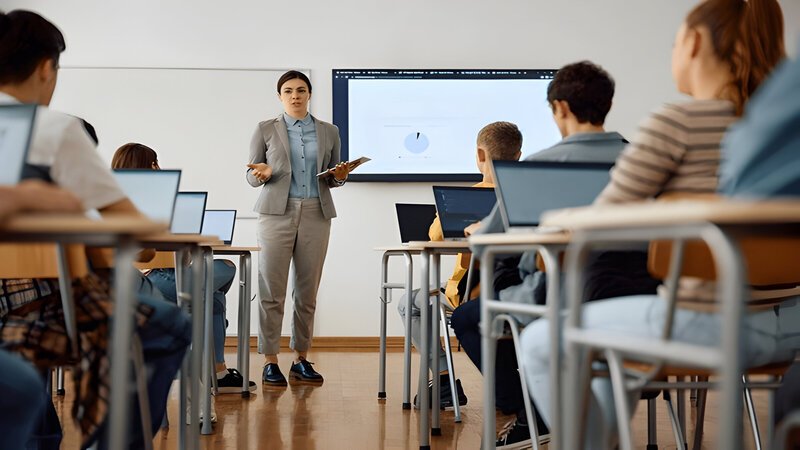Group discussions are crucial in academic and professional settings. They develop a variety of opinions, improve problem-solving skills, and encourage collaboration. A Journal of Applied Psychology study found that group discussions increase decision-making accuracy by 56% over solo efforts. Whether you’re preparing for a class discussion, a job interview, or a seminar, mastering the art of group conversations is essential. We will discuss the 10 best tips for effective group discussions to follow while leading productive and successful group discussions. These are the best tips which are also suggested by the best assignment writing service in the UK.
How to lead successful group discussions – Tips
1. Understand The Purpose
Setting a purpose for the group discussions is essential before you start. Even if you are hiring a writer from a master thesis writing help service you need to convey your purpose. Understanding the purpose assists participants in maintaining concentration and clarity. Is the objective to develop new ideas, resolve a serious problem, or come to a decision on a specific topic? The discussion becomes organized and goal-oriented when it has a specific goal that sets its direction and tone. Understanding the goal will help you better prepare your thoughts and arguments which eventually makes them more compelling and relevant.
2. Prepare Thoroughly
The key to contributing meaningfully to any type of group discussion is preparation. Spend some time learning about the subject immediately, acquiring relevant information, and preparing answers to any queries or opposing arguments. If you are well-prepared then you will be more confident and be able to add a lot to the discussion. Share your findings with the group, and be prepared to back up your arguments by using facts, figures, or stories from real life. This careful planning promotes an in-depth discussion and keeps the discussion moving forward.
3. Active Listening
In every group discussion, the ability to actively listen is essential. It means paying close attention, understanding, reacting, and memorizing what is stated. Express your interest by nodding or quickly acknowledging what they have said. Active listening fosters a safe and welcoming atmosphere in which all perspectives are heard and respected. Furthermore, it helps you understand various viewpoints which can improve the contributions that you make in the discussion.
4. Encourage Participation
Different points of view and enthusiastic engagement from all participants are essential for a group discussion to be successful. Make sure everyone gets a chance to speak, and encourage members who are more shy to express their opinions. To promote discussion and prevent taking over the discussion then you must provide open-ended questions. You can improve the discussion and guarantee a fair exchange of opinions by encouraging a participatory environment. Each person feels appreciated and respected due to this inclusivity which also enhances the discussion.
5. Stay On Topic
Discussions can easily get off-topic especially when people are enthusiastic about the subject. To maintain the discussion’s focus then bring it back to the main issue and repeat important points frequently. Maintaining the discussion’s focus makes sure that time is used effectively and that the goals are reached. Additionally, it keeps the discussion from breaking up which could lessen its impact.
6. Respect Different Opinions
Respect is encouraged and a diversity of perspectives is valued in an effective group discussion. Even if you don’t agree with anything, respect others’ opinions and stay away from completely rejecting ideas. Use sentences such as “Have you considered..” or “I understand your point, but..” This method encourages creativity and innovative thinking by fostering a respectful and friendly environment. Moreover, it develops a collaborative environment where all are independent to express their thoughts.
7. Summarize And Clarify
To maintain focus and clarity in the discussion, it is necessary to regularly summarize the main ideas and address any misunderstandings. It guarantees that every participant is in agreement and that no crucial details are missed. Repeat the key points of each significant section and make sure nothing is missed. This exercise improves collaborative effort and understanding. It provides an opportunity to discuss any unresolved issues or worries in order to make sure that the discussion proceeds without interruptions.
8. Be Brief And Useful
Time is important and should be handled carefully during a group discussion. Two advantages of time management include developing the habit of completing work given ahead of schedule and making sure that sufficient time is allotted to each activity (helpwithdissertation, 2022). Ultimately, developing time management skills will increase your academic performance (Nadinloyi et al., 2013). To avoid wasting time then it should be short and clear. Communicate your ideas concisely and avoid moving away. Make your points clearly and concisely by using bullet points or brief sentences.
9. Use Nonverbal Signals
Group discussions heavily rely on nonverbal communication. To show your approval then you must keep eye contact, maintain the proper body language, and nod. Nonverbal signs help you communicate more effectively and show that you are focused. An environment that is helpful and collaborative can be encouraged by good body language. Examples include nodding and leaning slightly forward. It shows your involvement in the discussion and your interest in it which encourages others to contribute their thoughts. Effective nonverbal communication can strengthen your verbal inputs and improve the discussion’s overall success.
10. Follow-Up And Action Points
Give a brief summary of the discussion’s key findings along with specific points for action. Determine the next actions, assign duties, and set deadlines. This follow-up makes sure that the discussion delivers outcomes that can be used in practice. It also gives future meetings and assignments a clear direction which increases the impact of the group’s efforts. Maintaining pace and committing to the discussion by following up ensures that goals and ideas are implemented.
Conclusion
Effective group discussions need an approach of mutual respect, preparation, and active listening. These ten tips will help you improve the quality and outcome of your discussions significantly. These tips will support you in contributing more effectively, listening carefully, and accomplishing your conversation goals in a variety of contexts such as meetings at work, seminars, and social events. Remember that the diversity of opinions and the collaborative spirit of the participants are what make a group discussion strong. Adopt these strategies to make the most of group discussions, contribute to meaningful discussions, and create an encouraging environment for all participants.
Reference list
HWD., (2022). Time Management Tips. Online Available at <https://www.helpwithdissertation.co.uk/blog/time-management-tips/> [Accessed on 30th March 2022]
Nadinloyi, K. B., Hajloo, N., Garamaleki, N. S., & Sadeghi, H. (2013). The study efficacy of time management training on increase academic time management of Students. Procedia – Social and Behavioral Sciences, 84, 134–138. https://doi.org/10.1016/j.sbspro.2013.06.523




